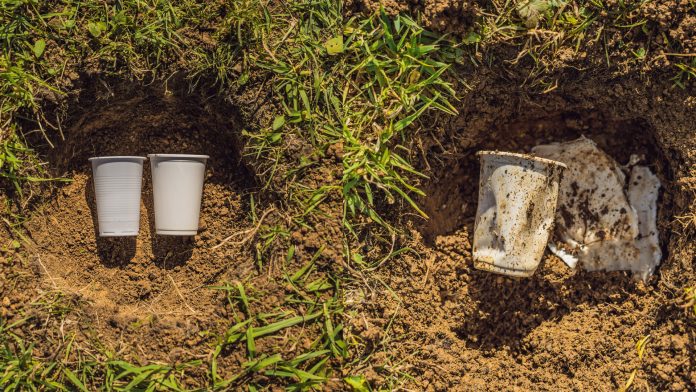A recent study by Wageningen University & Research, Netherlands, analysed the degradation of compostable packaging at an industrial composting plant.
A study by Wageningen University & Research tested the degradation of EN13432 certified compostable packaging, the results of which demonstrated that the products degraded within 22 days.
The degradation of compostable packaging project was commissioned by the Dutch Ministry of Economic Affairs and Climate Policy.
“The study shows that the tested objects have the same or an even faster disintegration and degradation rate as regular biowaste. We need more independent research of this kind,” says EUBP Chairman of European Bioplastics (EUBP), François de Bie.
The central aim of the study was to gather more empiric data on whether the degradation of compostable packaging is sufficient to be compatible with current organic waste treatment practices. In an industrial organic waste treatment trial, nine different compostable plastic products were tested: organic waste collection bags, plant pots, tea bags, coffee pads, coffee capsules, and fruit labels.
“The PLA tea bag also successfully disintegrated within only 22 days”
“We studied how compostable plastics behave in the current Dutch system for the treatment of GFT (i.e source separated biowaste) and came to the conclusion that compostable products can be processed well with GFT,” says Maarten van der Zee, co-author of the study.
After a first waste treatment cycle of only 11 days, the PLA plant pot already completely disintegrated. “This is significantly faster than paper and most organic matter. Even the orange and banana peels did not completely disintegrate and needed more time,” de Bie commented on the study. “The PLA tea bag also successfully disintegrated within only 22 days.”
The degradation in compostable packaging study also analysed the visual contamination of compost with plastics. No compostable plastics were identified. “The importance of this result cannot be overstated,” de Bie stresses. “All stakeholders involved in organic recycling, now have the proof that certified compostable plastics actually deliver.”
“In view of the upcoming development of the framework for biodegradable plastics included in the European Green Deal, I kindly ask the European Commission to take these research results into account and to support more similar research projects,” stated de Bie.



